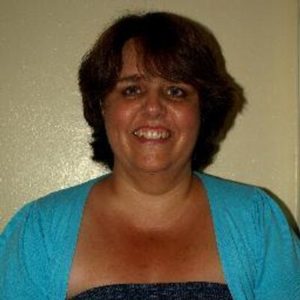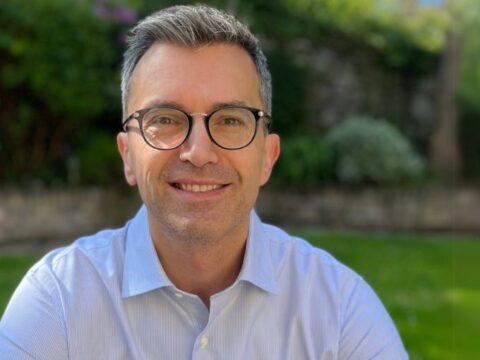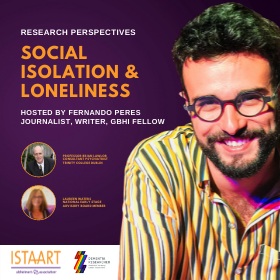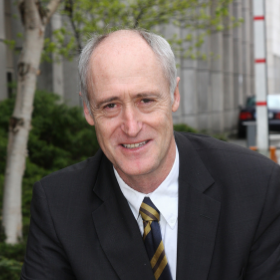Early in February, as I was leaving a meeting, an email dropped into my inbox. Nothing unusual in that you may think, except this email was from TEDx Swansea inviting me to speak at a TEDx event being planned for June.
My initial response was that it was spam and should not be opened but be immediately deleted. Yet, something held me back from pressing the delete button and I opened it. The email said they had seen my work on loneliness and was I interested in being a TED speaker? Now the cynic in me was still was not convinced that it was a genuine email, so I googled the sender and sure enough he was real and it was a genuine request.
I was now in a state of flux; did I thank them and say no? It did seem to be a big deal and I felt sick just thinking about presenting under the TED umbrella. Equally, opportunities like this do not come around that often, so before I could change my mind I responded that I was interested. I was immediately filled with self-doubt and figured it was all a mistake and I’d never hear from them again.
Weeks rolled by and a number of emails later, setting out the timetable for submitting a biography, photo and script, I was given the opportunity to meet with the lovely Mai Davies to discuss my talk before I submitted the script for approval. Given Mai’s experience as a broadcaster I felt it would be stupid not to take the opportunity to get advice from an expert. I met Mai in a local bar and we had a lovely chat about my talk and loneliness over coffee, and Mai offered invaluable tips on doing a TED talk which really helped to allay my nerves. I left that meeting already drafting my talk in my head. As I had a long train journey ahead of me that day, I decided to draft the talk on the train to North Wales. I sent it off to the guys at TEDx Swansea and it was approved with no changes.
A week before the event, and after weeks of practice, I went down to the Waterfront Museum to meet the organisers and a fellow presenter and we looked over the space. This helped in terms of visualising the space on the night and gave me the opportunity to ask those stupid questions such as What happens if I mess up? Will people turn up?
A week later, I nervously sat in the café at the Museum with Ian, my better half, and my fellow presenters. What was lovely about the event was the support from my fellow presenters. We were all nervous and we bonded over our stage fright and formed our own support group, bolstering each other and offering support as we went through a photo shoot, and the technical elements of the talk. It was great that some of the MSc students from the Centre for Innovative Ageing turned up as well, so there were familiar friendly faces in the audience. My talk was later in the evening so I sat back and listened to the other presenters, beginning with a talk on music and autism by Simon Parton, followed by Professor Mick Philips from Trinity Saint David and his talk on Climate Change and Acceptable Risk. After a performance by Claire Ferguson-Walker and a short break it was my turn.
I had done a final run through during the break and I was ready to be miked up. Although I have presented a number of times, standing on that red circle of carpet with the TED logo behind, looking out to over 100 faces was the most nerve-wracking thing I had done to date. As I began to speak, I could see that, my talk was hitting home. Loneliness is something we all fear and it was evident that it was something others had experienced too, or they knew of someone who had also experienced it. I had one moment when I went slightly off script as the enormity of what I was doing hit home, but I was soon back on track and those 18 minutes flew by. The encouragement and support from fellow presenters Mike and Sarah was a real help and I could see them out of the corner of my eye, encouraging me on. Then it was all over, all the preparation and worry and I was done. It meant I could sit back and enjoy the remaining talks by Mark Hendy and an emotive talk by Sarah Beard about Maggie’s Cancer Centres. The evening ended with a performance by Eleri Angharad, it was over.
The response I received after the event was amazing and immediate; so many people came up to speak to me about their experiences of loneliness. I was also approached by local Radio Swansea Wave on the night and subsequently did an interview for them a week or so later. After the event, we all went to Morgan’s Hotel for the after party and it was great to be able to relax and speak to people in an informal setting. People were interested in loneliness and each had a story to tell. Many wanted to know what we can do to alleviate loneliness; others recognised themselves in the stories I had told. Since the event, people have approached me or messaged me on Twitter to say that they had heard me speak and since then they have been motivated to open up about their own experiences or they have started conversations with people they are close to who they suspected were lonely.
Although it was a scary thing to do, the moral of the tale is if you are offered an opportunity outside of your comfort zone, just do it. You have no idea where it can lead or the connections you can make with other people. As the saying goes ‘feel the fear and do it anyway.’ I can honestly say it was the best thing I have done to date and an added bonus is that it has appeared to have cured me of my nerves when presenting, after all if I can do a TEDx talk I can do anything now.
Author

Dr Deborah Morgan is a researcher working in the Centre for Ageing and Dementia Research (CADR) and the Centre for Innovative Ageing (CIA). Deborah’s area of expertise is loneliness and social isolation in later life, the focus of her PhD. Her other research interests include health and health inequalities, the subjective experience of chronic illness and disability in later life, alcohol and substance misuse in older adults and life course perspectives. Deborah is thematic lead for the Future of Ageing Research Group.
You can follow Deborah on Twitter Follow @Deborah08765276







